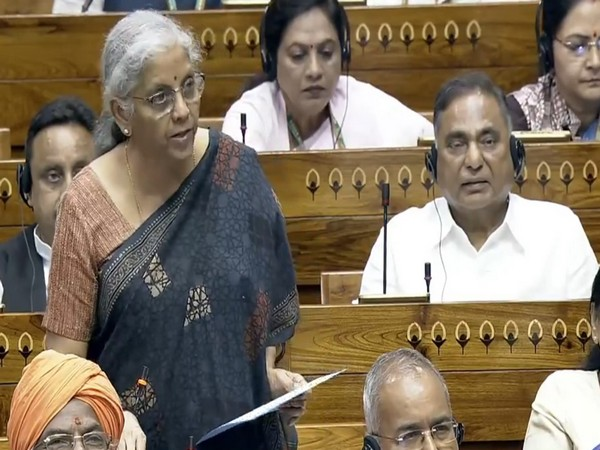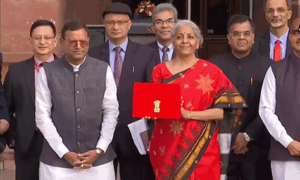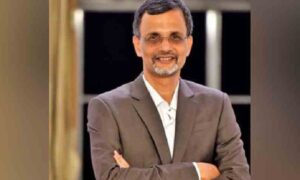
Picture : ANI / X
The Indian economy continues to expand, demonstrating resilience amidst geopolitical challenges, according to the Economic Survey 2023-24 tabled by Finance Minister Nirmala Sitharaman in Parliament .
It comes a day before she will present a record seventh union budget, and described the Indian economy as being on a “strong wicket and stable footing” and resilient in the face of geopolitical challenges.
The 476-page Economic Survey report highlights that the Indian economy has consolidated its post-COVID recovery, with fiscal and monetary policies ensuring economic and financial stability.
However, the survey warns that global volatility could hinder the achievement of ambitious growth targets.
“For the recovery to be sustained, there has to be heavy lifting on the domestic front because the environment has become extraordinarily difficult to reach agreements on key global issues such as trade, investment and climate,” the Survey states.
It points out that public investment has been crucial for capital formation in recent years. “Public investment has sustained capital formation in the last several years even as the private sector shed its balance sheet blues and began investing in FY22. Now, it has to receive the baton from the public sector and sustain the investment momentum in the economy. The signs are encouraging,” the Survey states.
The report highlights that high economic growth in FY24 followed growth rates of 9.7% and 7.0% in the previous two financial years.
It notes that while headline inflation is largely under control, certain food items remain elevated in price. The trade deficit for FY24 was lower compared to FY23, and the current account deficit is approximately 0.7% of GDP. Additionally, the current account registered a surplus in the last quarter of the financial year, and foreign exchange reserves are robust.
India’s workforce is nearly 56.5 crore, with more than 45 per cent employed in agriculture, 11.4 per cent in manufacturing, 28.9 per cent in services, and 13.0 per cent in construction, highlights the Economic Survey 2023-24 released by the finance ministry on Monday.
The survey also added that India’s female labour force participation has been rising over the last six years, and the unemployment rate is on the decline, the survey highlighted improvements in Indian labour market indicators over the past six years, with the unemployment rate dropping to 3.2 per cent in 2022-23.
The survey noted that employment has recovered from pandemic shocks in both urban and rural areas. It stated, “The female labour force participation rate has been rising for six years, from 23.3 per cent in 2017-18 to 37 per cent in 2022-23, driven mainly by the rising participation of rural women.”
Amid the government’s push for the infrastructure sector, the survey stated that while the services sector remains a major job creator, the construction sector has been rising in prominence lately.
To meet the demands of the employment sector amid a growing population the survey pointed out that the Indian economy needs to generate nearly 78.51 lakh jobs annually in the non-farm sector. The net payroll additions under EPFO have more than doubled in the past five years, signalling healthy growth in formal employment.
On AI the survey added as artificial intelligence becomes more prevalent in various economic activities, steering technological choices towards collective welfare is crucial.
Employers must balance deploying technology and labour. It suggests that agro-processing and the care economy are promising sectors for generating and sustaining quality employment.
[the_ad id=”55725″]


















